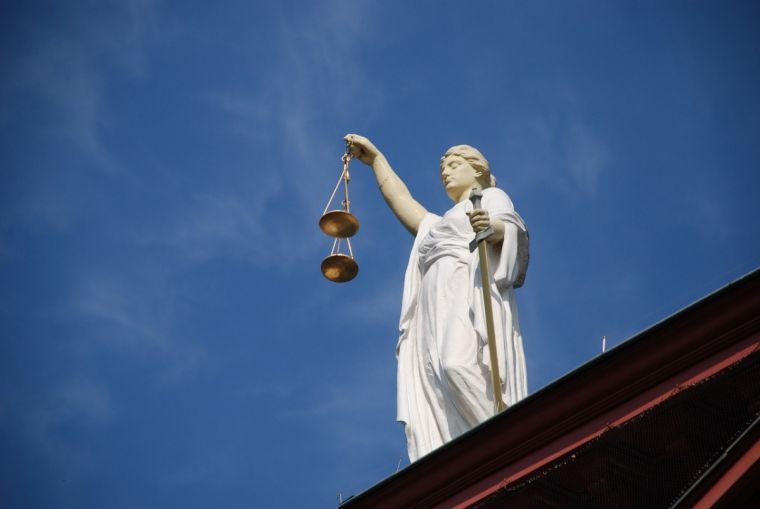Religious groups slam EU court ruling allowing companies to ban displays of faith
The Church of England is among a host of religious groups criticising a 'troubling' court judgment that allows companies to ban workers from wearing religious clothing.
The European Court of Justice ruled employees can be prevented from the 'visible wearing of any political, philosophical or religious sign' including Islamic headscarves. Any such ban must be based on a general company rule to 'dress neutrally' not on religious stereotypes or prejudices, the judges said.

The ruling involved two cases, one from Samira Achbita who was fired as a receptionist by the security company G4S in Belgium for wearing a hijab. She claimed she was being discriminated against but the court ruled the company was simply enforcing its policy preventing employees 'from wearing any visible signs of their political, philosophical or religious beliefs and/or from engaging in any observance of such beliefs'.
The other case was from Asma Bougnaoui who was fired from an IT consultancy firm, Micropole, after a customer complained his staff had been 'embarrassed' by her headscarf.
The court ruled with the employer in the Achbita case but with the employee in the Bougnaoui case, saying the later dismissal was based on discrimination.
It said: 'The court of justice finds that G4S's internal rule refers to the wearing of visible signs of political, philosophical or religious beliefs and therefore covers any manifestation of such beliefs without distinction.
'The rule thus treats all employees to the undertaking in the same way, notably by requiring them, generally and without any differentiation, to dress neutrally.'
But it added in relation to the Bougnaoui case: 'However, in the absence of such a rule, the willingness of an employer to take account of the wishes of a customer no longer to have the employer's services provided by a worker wearing an Islamic headscarf cannot be considered an occupational requirement that could rule out discrimination.'
But a CofE spokesman said the Achbita case raised 'significant questions about freedom of religion and its free expression'.
The spokesman added: 'In preferencing "freedom to conduct a business" above the free expression of faith the ruling potentially places corporate interest above those of the individual.
'Equally troubling is the assumption of "neutrality" within the ruling. The imposition of blanket bans – whilst often seeking honourable outcomes – may represent a worldview based on dogmatic or ideological assumptions which may unjustly limit individual rights.'
The Bishop of Leeds, Nick Baines, said the judgment must be studied closely but warned it raised 'vital' questions around free speech.
'The denial of freedom of religion is not a neutral act, contrary to how it might be portrayed. There is no neutral space. Furthermore, it illustrates how far we have to go as a secular society in working out what freedom of expression actually means.'
The Church's unusual intervention comes after the Muslim Council of Britain statement said it was a 'sad day for justice and equality'.
A spokesman said: ''At a time when populism and bigotry are at an all-time high, we fear that this ruling will serve as a green light to those wishing to normalise discrimination against faith communities.
'Many will be worried that this action will prevent Muslim women who choose to wear the scarf from securing jobs. And it sends a message that we cannot accept a plural society that recognises and celebrates religious differences.
'This is a backward step which people of all faiths and none should speak out against.'
Chief Rabbi Goldschmidt, president of the Conference of European Rabbis, said the ruling sent a signal to all religious groups they 'are no longer welcome'.
In a statement he added: 'Political leaders need to act to ensure that Europe does not isolate religious minorities and remains a diverse and open continent.'
But despite the widespread condemnation, legal expert and blogger on Law and Religion Frank Cranmer told Christian Today the two judgments should be taken together and said: 'Cases like this are always very difficult and depend heavily on the facts, but it seems to me that the court has got the balance about right.'











